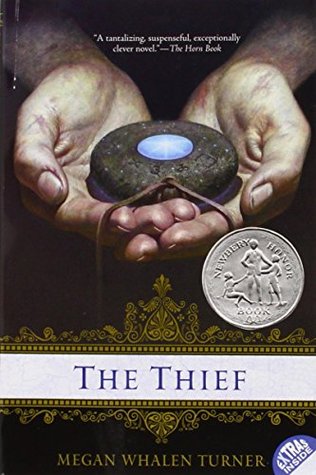What I’m Reading: Jane, Unlimited by Kristin Cashore
Spoilers ahead.
From the back cover:
Jane has lived a mostly ordinary life, raised by her recently deceased aunt Magnolia, whom she counted on to turn life into an adventure. Without Aunt Magnolia, Jane is lost. So she’s easily swept away when a glamorous, capricious, and wealthy acquaintance from years ago asks Jane to accompany her to a gala at the extravagant island mansion called Tu Reviens.
Jane remembers her aunt telling her: “If anyone ever invites to you to Tu Reviens, promise me that you’ll go.” What Jane doesn’t know is that the house will offer her five choices that could ultimately determine the course of her life.
One choice leads Jane into a heist mystery. Another takes her into a spy thriller. She finds herself in a gothic horror story, a space opera, and an extraordinary fantasy realm.
In the afterward, Kristin Cashore writes that this book took her a long time and came very far from its original conception as a choose your own adventure story. I think that’s the only way this weird book could have developed, one step at a time away from the original idea until it was a 1,000 steps away, maybe 10,000 steps away, because it’s that odd.
One friend described it as masterful. Another as odd. I’m still not sure how I feel about it, I think I’m leaning towards odd. One of the things I like most about reading the same author over time is seeing how they have developed as a writer (this was true even before I was actively writing, and may be indicative) and Cashore is leaps and bounds above where she started in Graceling, which was by no means at the zero point. (On the other hand I despise an author who never develops, whose stories never grow, or perspective shift, and if they’re still making the same grammar mistakes…well, I’ll excuse it for a debut author but by one’s third book one should have a better idea of where the commas go and what kinds of sentences go clunk.)
So, Jane, Unlimited. Odd but well written, a book that can’t decide what it is. I felt disjointed reading it, no surprise. I had that feeling of constantly having to keep track of new characters (possibly a problem I create for readers, too) even though they were all the same characters, because they were different in each timeline, for lack of a better word.
I didn’t like that the middle options were kind of sad and depressing, especially in the gothic horror option. If you follow me for any length of time you’ll learn I really don’t like horror.
I did like Jane. She had lots of agency and was also self reflective. Plus she had a creative outlet in her life, which I really appreciate in books—on the flip side, where it’s denied, it tends to make me not like the book, so that would be those middle options again.
One of the details I liked the most was the slow realization that Jane’s world is really not our world—if you read it, pay attention to the frogs.
The other detail I really liked was the madwoman in the attic/Jane Eyre callout, very nicely subverted. In the afterword, Cashore talks about all the other callouts I missed because I’ve never read Rebecca or The House of Mirth and because it’s been so long since I read Jane Eyre, and it made me want to have read them. There are also overt references to Winnie the Pooh. I love references to other books in the book I’m reading.
Last thought: I didn’t want a gothic house (again the horror thing), I wanted a magical benevolent house. Tu Reviens seems like a wonder box of a house, but that’s not where the story went. It makes me want to re-read York: The Shadow Cipher by Laura Ruby, with its trickster, quirky house or House of Many Ways by Dianna Wynne Jones.
